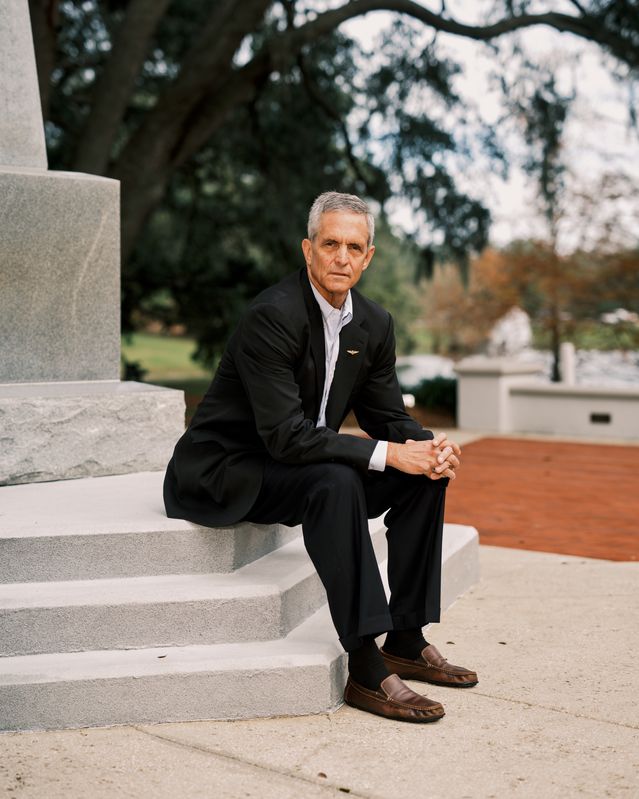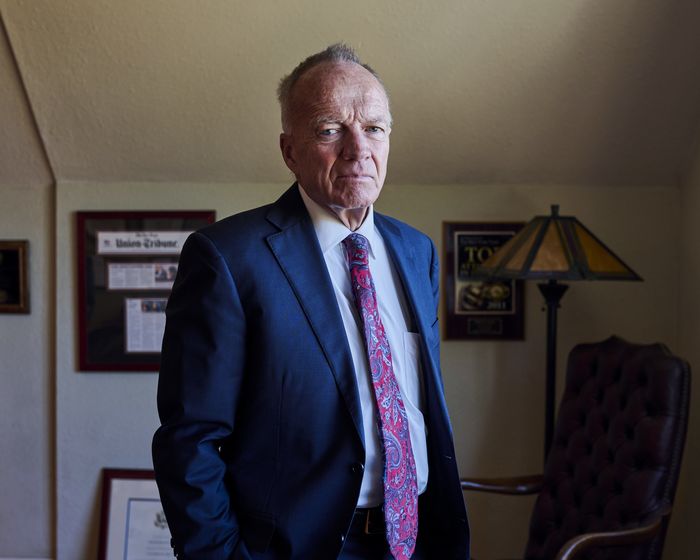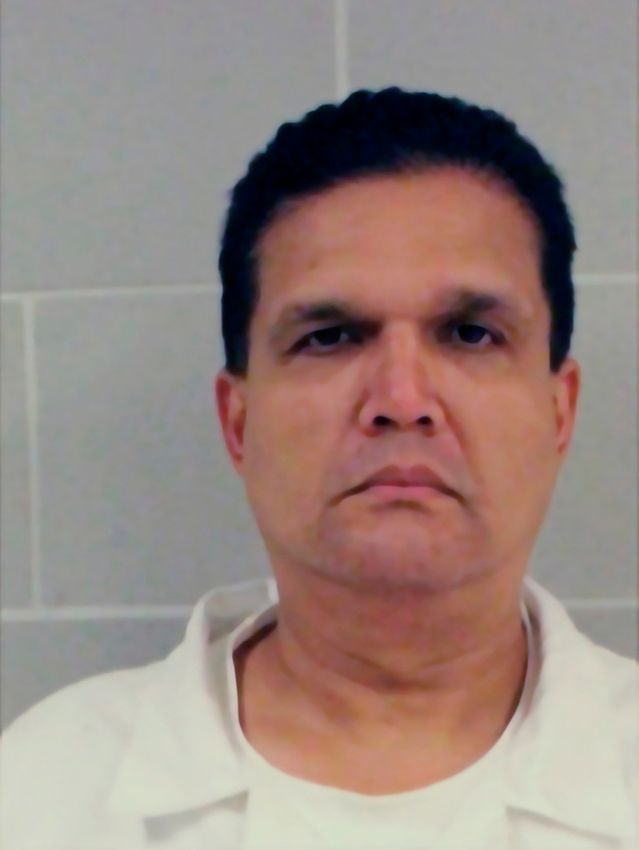You are using an out of date browser. It may not display this or other websites correctly.
You should upgrade or use an alternative browser.
You should upgrade or use an alternative browser.
Fat Leonard Keeps on Giving
- Thread starter NJROTC-CC
- Start date
Heatherg21
USNA '24 Mom BGO Bacon Lover Dog Lover
- Joined
- Jun 26, 2019
- Messages
- 5,616
How did the guarding of Fat Leonard go so wrong? 2 days of Uhauls coming and going didn't alert the 'guards'? He had been left unguarded previously and that drew negative attention. Whoever was in charge of the security blew it, or got paid well to look the other way.
I hope Venezuela gives him to us, but I find it unlikely.
I hope Venezuela gives him to us, but I find it unlikely.
NJROTC-CC
Member
- Joined
- May 6, 2019
- Messages
- 2,574
They probably wanted to collect a rewardWow. Venezuela, enroute to Russia. Pretty desperate.
I’m surprised the Venezuelans stopped him.
DTT!FSA!
Member
- Joined
- Sep 27, 2022
- Messages
- 333
The case keeps on giving...

 apnews.com
apnews.com
Felony convictions vacated for 4 Navy officers in sprawling 'Fat Leonard' bribery scandal
Felony convictions have been vacated for four Navy officers in a sprawling bribery scandal due to prosecutorial misconduct. U.S.
NJROTC-CC
Member
- Joined
- May 6, 2019
- Messages
- 2,574
Interesting that just yesterday WSJ had a long article about the case, highlighting the fact that Fat Leonard absconded to Venezuela:
From the WSJ
Navy Capt. David Lausman, once the commanding officer of an aircraft carrier in the Pacific, stood front and center in a trial that capped one of the biggest military corruption cases in U.S. history.
He and his alleged co-conspirators enjoyed “36 hours of straight drinking, prostitutes and hotel rooms,” a prosecutor told the jury. Debauchery was among the rewards Lausman and four senior officers allegedly received for helping Malaysian businessman Leonard Francis carry out a scheme that cost the U.S. tens of millions of dollars.
Francis, who carried 350 pounds on a 6-foot-2 frame and was known as “Fat Leonard,” acknowledged paying bribes and overcharging the U.S. to service Navy ships at ports around the Pacific. He struck a deal with federal prosecutors to provide evidence against the high-ranking Navy personnel who helped him.
A federal investigation had swept the ranks of dozens of Navy personnel deemed unfit to serve because of ties to Francis. The probe also sank the careers of officers tainted by unfounded allegations, including those who had been on track to command the Seventh Fleet. The 2022 trial in San Diego marked its unraveling.
U.S. assistant attorney Mark Pletcher told jurors that what set Lausman apart was “the bedazzling array of bribes this guy received from Leonard Francis from 2007 to 2011.”
One of Lausman’s lawyers, Robert Boyce, belittled the bribery allegations, which included free golf balls. Lausman, a 6-foot-6 Michigander known as “Too Tall,” was quiet, boring and not much of a drinker, according to one of Francis’ hired escorts, a woman in the Philippines. Lausman had declined her advances, she had told the defense team.
“Do you really think that this man, Dave Lausman, is going to throw away a distinguished Navy career for hotel upgrades, a couple of dinners,” Boyce asked jurors, “…a pen and cigars?”
ADVERTISEMENT
 David Lausman visiting a memorial park in the The Villages, a retirement community in Florida. PHOTO: ZACK WITTMAN FOR THE WALL STREET JOURNAL
David Lausman visiting a memorial park in the The Villages, a retirement community in Florida. PHOTO: ZACK WITTMAN FOR THE WALL STREET JOURNAL
The jury deliberated for nine days before convicting Lausman and three former colleagues of bribery and other crimes that carried prison sentences as long as 20 years. Jurors split on a fifth defendant, a retired rear admiral.
The courtroom win was the culmination of a 10-year government investigation backed by financial records and millions of documents, including many provided by Francis, who had pleaded guilty to multiple felony crimes. Emails, texts, photos and records revealed that Navy personnel took hundreds of thousands of dollars in bribes and gifts, feasted on meals of Kobe beef and Spanish suckling pigs and reveled in boozy all-night parties with attractive escorts—all paid for by Francis.
The largess persuaded Navy officers to ignore Francis’ financial shenanigans and provide him sensitive information about ship schedules. More than two dozen Navy personnel and contractors had pleaded guilty.
Yet after the guilty verdicts against Lausman and the other senior officers, a capstone of the corruption investigation, prosecutors dodged TV news cameras and left the courthouse without comment. The U.S. attorney’s office in San Diego, which handled the case, issued a five-paragraph press release. The chief prosecutor declined to speak about it.
Boyce’s law partner and wife, Laura Schaefer, sat in the back of the courtroom for months during the trial of Lausman and the other officers. She couldn’t shake the feeling prosecutors were hiding something.
Before the jury had reached a verdict, Boyce got a tip about a related case. Schaefer, who specializes in appeals, filed a court motion to learn more. Her pursuit led to revelations that turned one of the government’s biggest military corruption trials into one of its most embarrassing.
ADVERTISEMENT
 Attorney Robert Boyce in San Diego on Dec. 12. PHOTO: JOHN FRANCIS PETERS FOR THE WALL STREET JOURNAL
Attorney Robert Boyce in San Diego on Dec. 12. PHOTO: JOHN FRANCIS PETERS FOR THE WALL STREET JOURNAL
Two months after the trial, Francis, who was under house arrest, slipped out of his ankle bracelet, sneaked past guards and fled the U.S. shortly before he was due to be sentenced. He surfaced in Venezuela, where he remains beyond the reach of federal authorities.
A year after Francis’ escape, the convictions of Lausman and the three senior Navy officers crumbled, following disclosures of government missteps.
“It has been said by the defendants in this case, and the court has to agree, that the conduct by the government in this case can only be described as outrageous,” U.S. District Judge Janis Sammartino said at a Sept. 6 hearing. Prosecutors agreed to accept misdemeanor pleas and $100 fines from Lausman and the three other officers. Charges against the retired rear admiral were dropped last year.
“The prosecution team on this case was comprised of exceptional public servants with an unwavering commitment to justice,” U.S. Attorney Tara McGrath, now the top federal prosecutor in San Diego, said in a statement.
Four other senior officers in the case, who had pleaded guilty before the trial, are looking for a similar turn in fortune. Federal prosecutors are expected to allow three of them to retract their pleas in exchange for similar misdemeanor deals. The officers have a hearing scheduled for Wednesday. Charges against the fourth officer are expected to be dropped.
“The government had hitched its wagon to Leonard Francis, who gave them a narrative that they ran with,” said Joseph Mancano, one of the defense lawyers.
ADVERTISEMENT
This account is based on court documents and interviews with lawyers, Navy personnel, government officials and other people familiar with what happened.
The fleet is responsible for defending the U.S. in the Pacific against threats, including China’s newly aggressive maritime forces in the South China Sea. It has around 40,000 sailors and Marines, along with 50 to 70 ships that are generally deployed for seven months at a time. The ships make roughly a half dozen port calls during their tours, rest stops where port agents provide what are known as husbanding services—sewage removal, food deliveries, maintenance and securing the ship in port.
Starting the 1990s, Leonard Francis, 59 years old, built a reputation as the most reliable port agent throughout the Asia-Pacific region. He had turned a modest family business into a shipping supply company that at its peak was estimated to be worth hundreds of millions of dollars. Francis was known as a gregarious and charming man, whose knack for recognizing and exploiting people’s desires helped him attract allies.
Senior Navy officers praised Francis’ port-services company, Glenn Defense Marine Asia. He kept the ships running and the crews happy with welcome parties and rides to town after long weeks at sea.
Lausman met Francis when his ship pulled into Hong Kong in late 2004. Seventh Fleet admirals had encouraged Navy officers to attend parties hosted by Francis, a man seen as an important partner in the region. “I was told I have to attend and bring officers,” Lausman said in an interview.
ADVERTISEMENT
Lausman, who grew up in Detroit, was inspired to join the Navy after the attempted assassination of President Ronald Reagan in 1981. He earned his commission in 1983 and worked his way up the ranks, becoming commanding officer of the USS George Washington aircraft carrier while it operated in the Seventh Fleet. He also executed more port contracts with Francis than anyone else.
Francis “got the job done,” Lausman said. “His product was quality.”
 Capt. David Lausman, center, while serving as commanding officer of the aircraft carrier USS George Washington. PHOTO: U.S. NAVY
Capt. David Lausman, center, while serving as commanding officer of the aircraft carrier USS George Washington. PHOTO: U.S. NAVY
Praise for Francis’ work reached the White House. “Mr. Francis, recently I’ve been made aware of your significant contributions to U.S. military operations in support of State Department and U.S. Navy Department initiatives throughout Southeast Asia,” President George W. Bush wrote in a 2007 letter of commendation.
Behind the scenes, Francis used cash payments, gifts and prostitutes over the course of a decade to ingratiate himself with Navy personnel who provided him with classified ship schedules. Knowing where ships were heading gave him a significant advantage over rivals.
The jilted wife of a Navy man triggered his downfall. In 2012, the woman walked into the Japan office of the Naval Criminal Investigative Service, NCIS, and reported that Francis’ company had bought her husband a plane ticket.
The Defense Criminal Investigative Service, DCIS, an arm of the Inspector General for the Defense Department, assigned the case to a rookie agent, Cordell “Trey” DeLaPena. Among other things, DeLaPena learned that Francis was so well-connected that he had a spy in the NCIS who kept him apprised of the inquiry’s progress.
ADVERTISEMENT
 Photo of Leonard Francis from the U.S. Marshals Service. PHOTO: U.S. MARSHALS SERVICE/AP
Photo of Leonard Francis from the U.S. Marshals Service. PHOTO: U.S. MARSHALS SERVICE/AP
Knowing this, the agency set a trap. DeLaPena helped put fake documents in Francis’ case file saying the investigation was over. Navy officials then invited Francis to California to meet about new port contracts.
Federal agents arrested Francis on Sept. 16, 2013, at the Marriott Marquis in San Diego. They seized a laptop, hard drive, iPhone,
BlackBerry
and three boxes of Cohiba cigars from his hotel room. In 2015, he agreed to plead guilty and cooperate with investigators. Francis bribed scores of officers, he said, and had overbilled the Navy by more than $20 million.
The confession triggered an all-out hunt for Navy personnel involved. “It was endemic,” said Bryan Clark, of the Hudson Institute, a conservative think tank in Washington, and formerly a top civilian Navy official at the Defense Department. “You have to figure out how deep the rot went.”
Francis offered investigators the names of his corrupt helpers, as well as financial documents, including receipts from restaurants where he hosted meals for Navy personnel and stores where he bought them expensive gifts.
The government was promised all it would need to clean house.
ADVERTISEMENT
At 7:30 a.m. on March 14, 2017, federal marshals rapped on Lausman’s door in The Villages, a Florida retirement community. “You’re under arrest,” one said. They handcuffed Lausman and drove him, still in his shorts, to a court in Ocala, Fla. Bail was set at $100,000.
The 2017 indictment alleged that Francis lavished the nine officers with gratuities, including foie gras terrine and $600 bottles of Hennessy Private Reserve cognac. The men, in turn, allegedly persuaded top Navy leaders to schedule ships to stop at ports served by Francis’ company. Lausman accepted free golf bags and umbrellas, as well as money for food and drinks during a golf outing, the government alleged.
“Yet another unfortunate example of those who place their own greed above their responsibility to serve this nation with honor,” Dermot O’Reilly, director of DCIS, said when Lausman and the others were charged.
In March 2022, after four of the officers in the case pleaded guilty to conspiring with Francis, prosecutors put Lausman and the others on trial.
Prosecutors told the jury that Lausman had slept with an escort hired by Francis, which Lausman denied. The government didn’t disclose to the defense until later that investigators had communicated with the woman after the trial began and she, too, said they didn’t have sex. Prosecutors are obligated to turn over evidence favorable to the defense as they receive it. Defense attorneys asked for a dismissal. The judge declined.
Francis was expected to be the government’s star witness, but that role fell to DeLaPena, the government’s lead investigator. Francis never testified.
Mancano, one of the defense lawyers, expressed skepticism when DeLaPena testified that he had reviewed millions of documents in the case. “I read a lot faster than you, Mr. Mancano,” DeLaPena said.
Mancano pressed him, citing a back-of-the-envelope calculation that if DeLaPena had spent five minutes on each document, it would have taken him 19 years, working 12-hour days, to get through them all.
ADVERTISEMENT
“You’re not willing to admit that you’ve exaggerated the number of documents that you personally read?” Mancano asked.
“Absolutely not,” DeLaPena said.
One of the other defense lawyers asked DeLaPena how investigators authenticated financial documents from Francis’ company, Glenn Defense Marine Asia, which made up a crucial element of the prosecution’s case.
“Who gathered the packet of materials?” the lawyer asked.
DeLaPena said his understanding was that an investigator working for the defense team retrieved hard drives and paper copies of financial records from Singapore, where Francis’ company was based.
“I have absolutely no indication that anything was cherry-picked,” DeLaPena testified.
After the case went to the jury, Laura Schaefer acted on the tip her husband had received: Look at another of DeLaPena’s corruption cases.
From the WSJ
Navy Capt. David Lausman, once the commanding officer of an aircraft carrier in the Pacific, stood front and center in a trial that capped one of the biggest military corruption cases in U.S. history.
He and his alleged co-conspirators enjoyed “36 hours of straight drinking, prostitutes and hotel rooms,” a prosecutor told the jury. Debauchery was among the rewards Lausman and four senior officers allegedly received for helping Malaysian businessman Leonard Francis carry out a scheme that cost the U.S. tens of millions of dollars.
Francis, who carried 350 pounds on a 6-foot-2 frame and was known as “Fat Leonard,” acknowledged paying bribes and overcharging the U.S. to service Navy ships at ports around the Pacific. He struck a deal with federal prosecutors to provide evidence against the high-ranking Navy personnel who helped him.
A federal investigation had swept the ranks of dozens of Navy personnel deemed unfit to serve because of ties to Francis. The probe also sank the careers of officers tainted by unfounded allegations, including those who had been on track to command the Seventh Fleet. The 2022 trial in San Diego marked its unraveling.
U.S. assistant attorney Mark Pletcher told jurors that what set Lausman apart was “the bedazzling array of bribes this guy received from Leonard Francis from 2007 to 2011.”
One of Lausman’s lawyers, Robert Boyce, belittled the bribery allegations, which included free golf balls. Lausman, a 6-foot-6 Michigander known as “Too Tall,” was quiet, boring and not much of a drinker, according to one of Francis’ hired escorts, a woman in the Philippines. Lausman had declined her advances, she had told the defense team.
“Do you really think that this man, Dave Lausman, is going to throw away a distinguished Navy career for hotel upgrades, a couple of dinners,” Boyce asked jurors, “…a pen and cigars?”
ADVERTISEMENT
The jury deliberated for nine days before convicting Lausman and three former colleagues of bribery and other crimes that carried prison sentences as long as 20 years. Jurors split on a fifth defendant, a retired rear admiral.
The courtroom win was the culmination of a 10-year government investigation backed by financial records and millions of documents, including many provided by Francis, who had pleaded guilty to multiple felony crimes. Emails, texts, photos and records revealed that Navy personnel took hundreds of thousands of dollars in bribes and gifts, feasted on meals of Kobe beef and Spanish suckling pigs and reveled in boozy all-night parties with attractive escorts—all paid for by Francis.
The largess persuaded Navy officers to ignore Francis’ financial shenanigans and provide him sensitive information about ship schedules. More than two dozen Navy personnel and contractors had pleaded guilty.
Yet after the guilty verdicts against Lausman and the other senior officers, a capstone of the corruption investigation, prosecutors dodged TV news cameras and left the courthouse without comment. The U.S. attorney’s office in San Diego, which handled the case, issued a five-paragraph press release. The chief prosecutor declined to speak about it.
Boyce’s law partner and wife, Laura Schaefer, sat in the back of the courtroom for months during the trial of Lausman and the other officers. She couldn’t shake the feeling prosecutors were hiding something.
Before the jury had reached a verdict, Boyce got a tip about a related case. Schaefer, who specializes in appeals, filed a court motion to learn more. Her pursuit led to revelations that turned one of the government’s biggest military corruption trials into one of its most embarrassing.
ADVERTISEMENT
Two months after the trial, Francis, who was under house arrest, slipped out of his ankle bracelet, sneaked past guards and fled the U.S. shortly before he was due to be sentenced. He surfaced in Venezuela, where he remains beyond the reach of federal authorities.
A year after Francis’ escape, the convictions of Lausman and the three senior Navy officers crumbled, following disclosures of government missteps.
“It has been said by the defendants in this case, and the court has to agree, that the conduct by the government in this case can only be described as outrageous,” U.S. District Judge Janis Sammartino said at a Sept. 6 hearing. Prosecutors agreed to accept misdemeanor pleas and $100 fines from Lausman and the three other officers. Charges against the retired rear admiral were dropped last year.
“The prosecution team on this case was comprised of exceptional public servants with an unwavering commitment to justice,” U.S. Attorney Tara McGrath, now the top federal prosecutor in San Diego, said in a statement.
Four other senior officers in the case, who had pleaded guilty before the trial, are looking for a similar turn in fortune. Federal prosecutors are expected to allow three of them to retract their pleas in exchange for similar misdemeanor deals. The officers have a hearing scheduled for Wednesday. Charges against the fourth officer are expected to be dropped.
“The government had hitched its wagon to Leonard Francis, who gave them a narrative that they ran with,” said Joseph Mancano, one of the defense lawyers.
ADVERTISEMENT
This account is based on court documents and interviews with lawyers, Navy personnel, government officials and other people familiar with what happened.
Ship to shore
By 2013, the discovery of Francis’ scheme had raised alarms at the Pentagon over national-security holes in the Seventh Fleet, the Navy’s largest.The fleet is responsible for defending the U.S. in the Pacific against threats, including China’s newly aggressive maritime forces in the South China Sea. It has around 40,000 sailors and Marines, along with 50 to 70 ships that are generally deployed for seven months at a time. The ships make roughly a half dozen port calls during their tours, rest stops where port agents provide what are known as husbanding services—sewage removal, food deliveries, maintenance and securing the ship in port.
Starting the 1990s, Leonard Francis, 59 years old, built a reputation as the most reliable port agent throughout the Asia-Pacific region. He had turned a modest family business into a shipping supply company that at its peak was estimated to be worth hundreds of millions of dollars. Francis was known as a gregarious and charming man, whose knack for recognizing and exploiting people’s desires helped him attract allies.
Senior Navy officers praised Francis’ port-services company, Glenn Defense Marine Asia. He kept the ships running and the crews happy with welcome parties and rides to town after long weeks at sea.
Lausman met Francis when his ship pulled into Hong Kong in late 2004. Seventh Fleet admirals had encouraged Navy officers to attend parties hosted by Francis, a man seen as an important partner in the region. “I was told I have to attend and bring officers,” Lausman said in an interview.
ADVERTISEMENT
Lausman, who grew up in Detroit, was inspired to join the Navy after the attempted assassination of President Ronald Reagan in 1981. He earned his commission in 1983 and worked his way up the ranks, becoming commanding officer of the USS George Washington aircraft carrier while it operated in the Seventh Fleet. He also executed more port contracts with Francis than anyone else.
Francis “got the job done,” Lausman said. “His product was quality.”
Praise for Francis’ work reached the White House. “Mr. Francis, recently I’ve been made aware of your significant contributions to U.S. military operations in support of State Department and U.S. Navy Department initiatives throughout Southeast Asia,” President George W. Bush wrote in a 2007 letter of commendation.
Behind the scenes, Francis used cash payments, gifts and prostitutes over the course of a decade to ingratiate himself with Navy personnel who provided him with classified ship schedules. Knowing where ships were heading gave him a significant advantage over rivals.
The jilted wife of a Navy man triggered his downfall. In 2012, the woman walked into the Japan office of the Naval Criminal Investigative Service, NCIS, and reported that Francis’ company had bought her husband a plane ticket.
The Defense Criminal Investigative Service, DCIS, an arm of the Inspector General for the Defense Department, assigned the case to a rookie agent, Cordell “Trey” DeLaPena. Among other things, DeLaPena learned that Francis was so well-connected that he had a spy in the NCIS who kept him apprised of the inquiry’s progress.
ADVERTISEMENT
Knowing this, the agency set a trap. DeLaPena helped put fake documents in Francis’ case file saying the investigation was over. Navy officials then invited Francis to California to meet about new port contracts.
Federal agents arrested Francis on Sept. 16, 2013, at the Marriott Marquis in San Diego. They seized a laptop, hard drive, iPhone,
BlackBerry
and three boxes of Cohiba cigars from his hotel room. In 2015, he agreed to plead guilty and cooperate with investigators. Francis bribed scores of officers, he said, and had overbilled the Navy by more than $20 million.
The confession triggered an all-out hunt for Navy personnel involved. “It was endemic,” said Bryan Clark, of the Hudson Institute, a conservative think tank in Washington, and formerly a top civilian Navy official at the Defense Department. “You have to figure out how deep the rot went.”
Francis offered investigators the names of his corrupt helpers, as well as financial documents, including receipts from restaurants where he hosted meals for Navy personnel and stores where he bought them expensive gifts.
The government was promised all it would need to clean house.
Big fish
Investigators conducted 1,700 interviews, and grand juries issued more than 200 subpoenas. After 10 Navy officials, including an admiral and two captains, pleaded guilty, prosecutors turned to their most ambitious case—nine senior officers who had served in the Seventh Fleet.ADVERTISEMENT
At 7:30 a.m. on March 14, 2017, federal marshals rapped on Lausman’s door in The Villages, a Florida retirement community. “You’re under arrest,” one said. They handcuffed Lausman and drove him, still in his shorts, to a court in Ocala, Fla. Bail was set at $100,000.
The 2017 indictment alleged that Francis lavished the nine officers with gratuities, including foie gras terrine and $600 bottles of Hennessy Private Reserve cognac. The men, in turn, allegedly persuaded top Navy leaders to schedule ships to stop at ports served by Francis’ company. Lausman accepted free golf bags and umbrellas, as well as money for food and drinks during a golf outing, the government alleged.
“Yet another unfortunate example of those who place their own greed above their responsibility to serve this nation with honor,” Dermot O’Reilly, director of DCIS, said when Lausman and the others were charged.
In March 2022, after four of the officers in the case pleaded guilty to conspiring with Francis, prosecutors put Lausman and the others on trial.
Prosecutors told the jury that Lausman had slept with an escort hired by Francis, which Lausman denied. The government didn’t disclose to the defense until later that investigators had communicated with the woman after the trial began and she, too, said they didn’t have sex. Prosecutors are obligated to turn over evidence favorable to the defense as they receive it. Defense attorneys asked for a dismissal. The judge declined.
Francis was expected to be the government’s star witness, but that role fell to DeLaPena, the government’s lead investigator. Francis never testified.
Mancano, one of the defense lawyers, expressed skepticism when DeLaPena testified that he had reviewed millions of documents in the case. “I read a lot faster than you, Mr. Mancano,” DeLaPena said.
Mancano pressed him, citing a back-of-the-envelope calculation that if DeLaPena had spent five minutes on each document, it would have taken him 19 years, working 12-hour days, to get through them all.
ADVERTISEMENT
“You’re not willing to admit that you’ve exaggerated the number of documents that you personally read?” Mancano asked.
“Absolutely not,” DeLaPena said.
One of the other defense lawyers asked DeLaPena how investigators authenticated financial documents from Francis’ company, Glenn Defense Marine Asia, which made up a crucial element of the prosecution’s case.
“Who gathered the packet of materials?” the lawyer asked.
DeLaPena said his understanding was that an investigator working for the defense team retrieved hard drives and paper copies of financial records from Singapore, where Francis’ company was based.
“I have absolutely no indication that anything was cherry-picked,” DeLaPena testified.
After the case went to the jury, Laura Schaefer acted on the tip her husband had received: Look at another of DeLaPena’s corruption cases.
